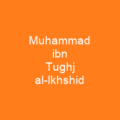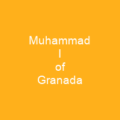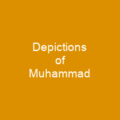Muhammad was an Arab religious, social, and political leader and the founder of Islam. According to Islamic doctrine, he was a prophet, sent to preach and confirm the monotheistic teachings of Adam, Abraham, Moses, Jesus, and other prophets. Muhammad united Arabia into a single Muslim polity, with the Quran as well as his teachings and practices forming the basis of Islamic religious belief. He died in 632, a few months after returning from the Farewell Pilgrimage.
About Muhammad in brief

To escape ongoing persecution, he sent some of his followers to Abyssinia in 615, before he and his followers migrated from Mecca to Medina later in 622. This event, the Hijra, marks the beginning of the Islamic calendar, also known as theHijri Calendar. In December 629, after eight years of intermittent fighting with Mecca tribes, Muhammad gathered an army of 10,000 Muslim converts and marched on the city of Mecca. He seized the city with little bloodshed, and Muhammad died in June 632. Some Western academics cautiously view the collections of Hadith as accurate historical sources, such as Muhammad al-Bukhari, Muhammad ibn al-Hajjaj, Muhammad at-Tirmidhi, Abd ar-Rahman al-Nasai, Abu Dawood, Malik ibn Anas al-Daraqni, Majah ibn Majah, Malik al-Rasid, and Anwar al-Taraqneh. Many scholars accept these early biographies as authentic, though their accuracy is unascertainable. Recent studies have led scholars to distinguish between traditions touching matters that are purely legal and purely historical. In some cases, traditions could have been invented while historic events may have been only subject to exceptional cases. The earliest surviving written sira is Ibn Ishaq’s Life of God’s Messenger written c. 767 CE. Although the work was lost, this sira was used at great length by Ibn Hisham and to a lesser extent by Al-Tabari.
You want to know more about Muhammad?
This page is based on the article Muhammad published in Wikipedia (as of Jan. 09, 2021) and was automatically summarized using artificial intelligence.







